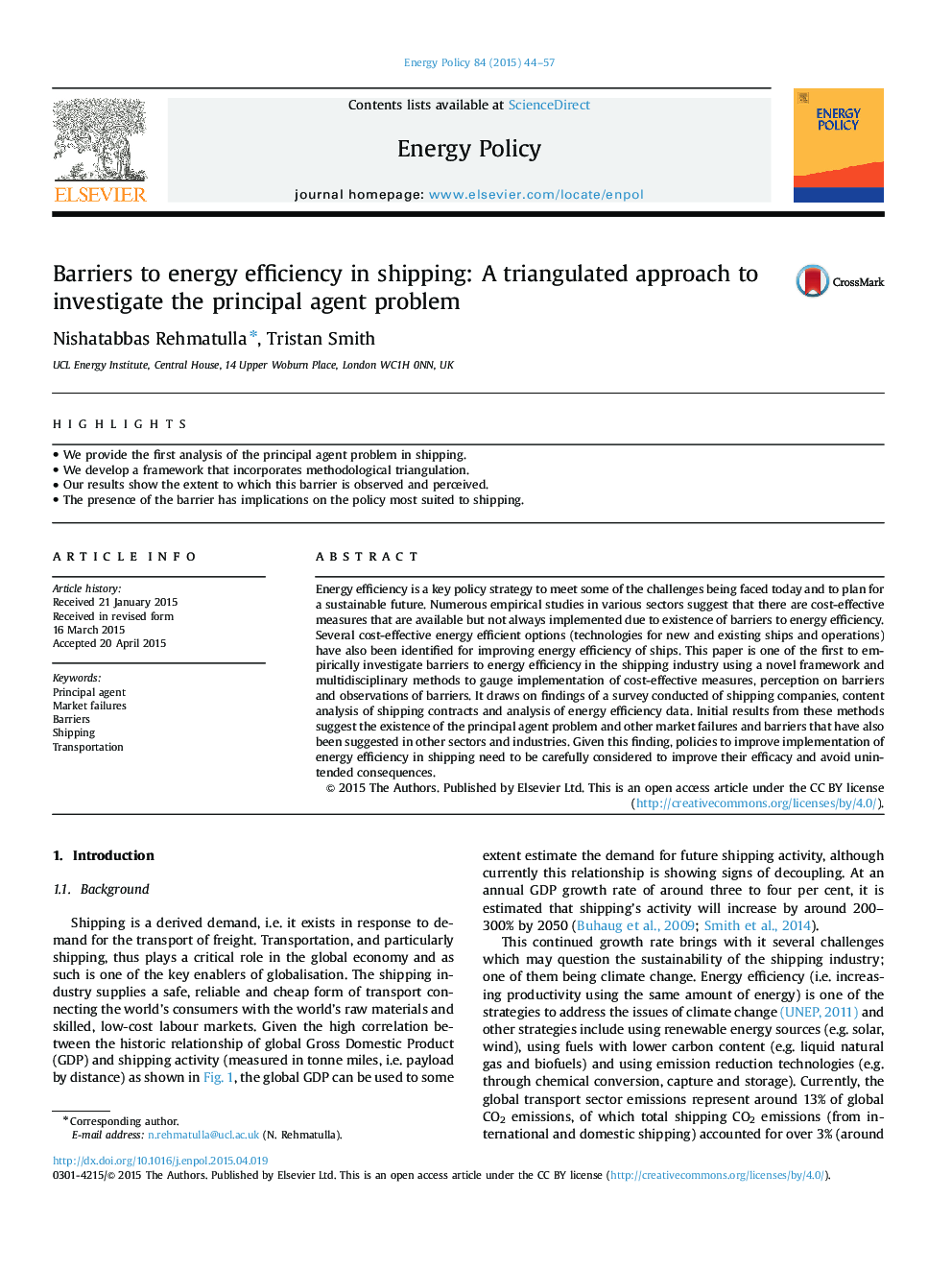| Article ID | Journal | Published Year | Pages | File Type |
|---|---|---|---|---|
| 7400731 | Energy Policy | 2015 | 14 Pages |
Abstract
Energy efficiency is a key policy strategy to meet some of the challenges being faced today and to plan for a sustainable future. Numerous empirical studies in various sectors suggest that there are cost-effective measures that are available but not always implemented due to existence of barriers to energy efficiency. Several cost-effective energy efficient options (technologies for new and existing ships and operations) have also been identified for improving energy efficiency of ships. This paper is one of the first to empirically investigate barriers to energy efficiency in the shipping industry using a novel framework and multidisciplinary methods to gauge implementation of cost-effective measures, perception on barriers and observations of barriers. It draws on findings of a survey conducted of shipping companies, content analysis of shipping contracts and analysis of energy efficiency data. Initial results from these methods suggest the existence of the principal agent problem and other market failures and barriers that have also been suggested in other sectors and industries. Given this finding, policies to improve implementation of energy efficiency in shipping need to be carefully considered to improve their efficacy and avoid unintended consequences.
Related Topics
Physical Sciences and Engineering
Energy
Energy Engineering and Power Technology
Authors
Nishatabbas Rehmatulla, Tristan Smith,
